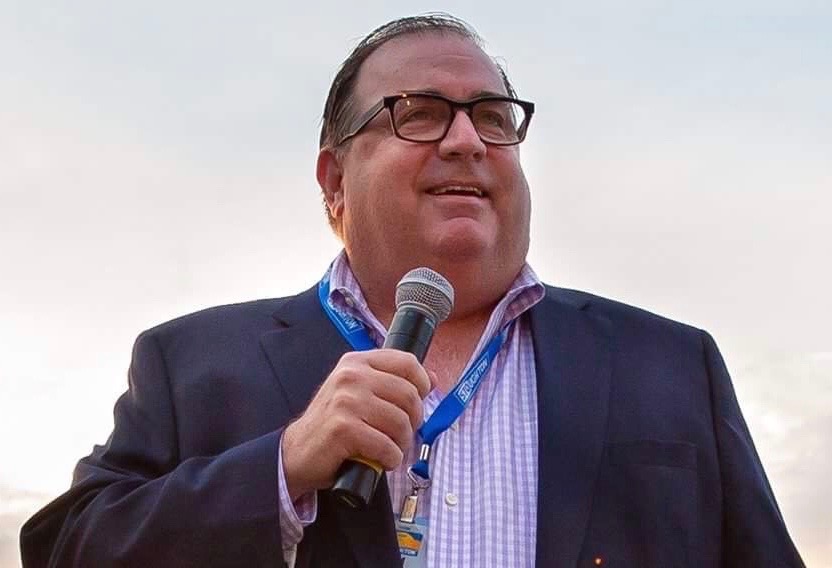Plus: A treatment provider puts 100% of its fees at risk, and more industry news
By Mark Mravic
New & Next: Legal
Drugmaker Teva Agrees to Pay $4.25 Billion to Settle Opioid Claims
The massive multiparty litigation that has defined the legal landscape of the opioid crisis in recent years may be approaching its end stages. This week Israeli-based drug manufacturer Teva—which had been one of the staunchest holdouts in the spate of lawsuits holding the drug industry responsible for the deadly addiction and overdose epidemic in America—agreed in principle to a settlement worth up to $4.25 billion. The deal includes as much as $3.05 billion in cash and $1.2 billion worth of naloxone, the overdose treatment drug, paid out over the next 13 years to some 2,500 plaintiffs, including states, municipalities and tribal organizations.
Teva makes two brand-name fentanyl drugs, Actiq and Fentora, for cancer treatment, as well other generic opioid medications, including oxycodone. States and other plaintiffs alleged that Teva:
- Promoted its potent, rapid-onset fentanyl products for use by non-cancer patients;
- Deceptively marketed opioids by downplaying the risks of addiction and overstating the drugs’ benefits; and
- Failed to comply with monitoring requirements for suspicious orders
As is typical in these agreements, Teva will admit to no wrongdoing. It’s a price that plaintiffs have been willing to pay to get desperately needed resources into the treatment pipeline.
“Nothing can undo the harm opioids-makers like Teva have inflicted on families across the country or the lives lost to the opioid epidemic,” California attorney general Rob Bonta said in a statement. “But this agreement will provide much-needed relief for its victims and, importantly, critical funds for overdose prevention and opioid addiction disorder treatment.”
According to the Associated Press, the Teva deal pushes the amount of agreed-to or completed settlements in recent opioid litigation to more than $40 billion, including $21 billion from the Big Three distributors and $5 billion from manufacturer Johnson & Johnson, and between $6 billion and $10 billion from the Sackler family and Purdue Pharmaceuticals, the company behind OxyContin. However, this week’s deal is not the final word for Teva. The company remains in negotiations with New York and two of its counties, after Teva lost a jury trial in December over its role in the state’s opioid crisis.
New & Next: Industry
Digital Addiction Provider Quit Genius Puts 100% of Fees on the Table
An integral aspect of value-based care is that providers assume some financial risk based on treatment outcomes. Models vary but can involve both upside risk—in which a provider receives bonus payments for hitting certain targets—and downside risk—where providers may have to pay back some of their fees if targets are missed.
Now one digital addiction treatment provider is taking the idea to the extreme. Quit Genius, a “digital clinic” that combines virtual behavioral therapy with medication and remote monitoring for nicotine, alcohol and opioid addiction, is moving to a model that puts 100% of its fees at risk. In short, that means the company will only get paid if it meets strict clinical, engagement, satisfaction and performance goals agreed upon with its clients. The company, which previously offered 50% of its fee at risk, says it has not missed a performance goal since launching in 2020. Quit Genius partners with more than 100 employers and health plans covering 2.5 million people.
“We recognize that in an increasingly uncertain economic environment, value-based care models will become more important than ever,” says CEO and co-founder Yusuf Sherwani, MD. “Since founding Quit Genius, every contract we have signed has included fees at risk, so moving to a full-risk model is a natural evolution in our mission.”
New & Next: Education
Help Shape the Next Generation of Addiction Professionals
Earlier this year, NAADAC announced the 50 master’s-degree level students from across the country who were selected for the 2022-23 class of the National Board for Certified Counselors’ (NBCC) Minority Fellowship Program for Addiction Counselors. Each of the fellows, who will design their own year-long study and research program, will receive a $15,000 grant; travel expenses for additional training will also be covered. Now NAADAC is seeking experienced addiction professionals who would like to serve as mentors for the program, helping to guide participants through the academic year. Those interested should contact NAADAC programs manager Jennifer Velotta, MNLP, NCAC II, SUDP, CPP, at jvelotta@naadac.org or by phone at (703) 741-7686, ext. 107.
New & Next: Conferences
Treatment Symposium in the Rockies
The Rocky Mountain Symposium on Addictive Disorders (formerly known as NCAD West) will take place Aug. 5-7 in Denver. The conference will feature more than 40 nationally renowned speakers and dozens of expert-led educational sessions, and provide participants with educational, networking and engagement opportunities across all three days. Students, residents and fellows are eligible for a discount on their registration fee. Organizers expect more than 1,000 participants. Main topics on this year’s agenda include:
• Healing the family
• Harm reduction
• Trauma
• Medication-assisted treatment
• Ethics
• Leadership and business development
More information is available here, and to register go here.
Photo: Tingey Law Firm














